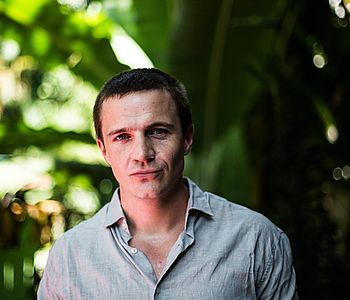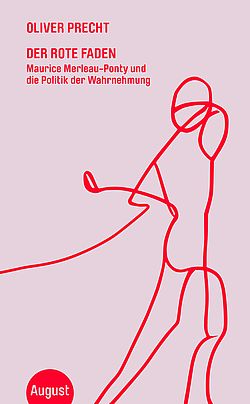Dr. Oliver Precht | Associated Researcher

Home Institution
:
Leibniz-Zentrum für Literatur- und Kulturforschung
|
Position
:
Researcher
|
Disciplines
:
Philosophy
,
Cultural Sciences
,
Literature
|
Researchtopic
Paradoxes of Emancipation
Based on an interdisciplinary analysis of the current crisis of Brazilian democracy and social structure, the Alexander von Humboldt-linkage programme deals with the »Paradoxes of Emancipation«. The case study of contemporary Brazil shows that the complex relationship between democracy and knowledge is neither the same nor the exact counterpart of the much clearer relationship between authoritarianism and fake news. While the discourse of the radical right is based on a deliberate rejection of a knowledge-based shared public sphere, the defense of democratic structures cannot rely on a mere affirmation of the distinction between knowledge and ignorance. For it is precisely this distinction that produces exclusions, divisions and hierarchies that nourishes post-factual discourse.
Website: https://cmb.hu-berlin.de/forschung/forschungsschwerpunkt/kritisches-denken-im-plural-begriffliche-wege-der-sozialforschung/paradoxa-der-emanzipation-1
Institution of thesis
Projects
Marx in France. The Self-Determination of French Theory (1945–1995)
Since the end of World War II, the convoluted, often contradictory reception of Marx in France has repeatedly provided decisive impulses for a sustained reoccupation with the problem of self-determination. The questions of the meaning and purpose of theory and of the role of intellectuals in and for society seem to have been omnipresent in the debates of the period. However, this was by no means an after-the-fact, “metatheoretical,” or descriptive definition of theory. Rather, the problem of self-determination itself became the first question, thus raising the issue of the autonomy or heteronomy of thought. In order to reconstruct fifty years of French theoretical history, this research project takes as its starting point the reception Marx received in France—the implicit and explicit affirmation, reading, transformation, and rejection of his ideas and writings.
A theory that strives to change the world must base itself on the changing political, social, institutional, and scientific reality. The self-determination (understood as both self-definition and autonomy) of French theory thus did not take place in a vacuum. On the contrary, it was closely linked to the historical ruptures of the epoch—the Algerian War, the founding of the Fifth Republic, the events of May 68, the assassination of Hélène Rytmann and its aftermath, and the collapse of the Soviet Union. Similarly, a history of the political interventions arising from this self-determination can only be written as the specific history of intellectual circles, academic and non-academic institutions, publishing houses, book series, and journals.
This research project seeks not only to trace this eventful history, but also to identify its characteristic, unifying traits. As the reception of Marx’s thinking challenged notions of a philosophia perennis as well as the philosopho-centrism of tradition, theory could no longer be defined either as a form of speculation detached from the world, or as the highest possibility of human existence, or the absolute moment of history. Engaging with tangible, chaotic history, it must rather tell stories itself. Beginning with Sartre, theory has been in dialogue with the literary, the autobiographical, and the psychoanalytical, and since the early interventions of Lévi-Strauss, it has been continually confronted with the fundamental problem of philosophical Eurocentrism. This project follows these decentering movements in order to find out whether a common style of thinking emerges from this history—a “politics” in the broadest sense of the word, encompassing strategic and ideological differences and applicable to the here and now.
Website: https://www.zfl-berlin.org/project/marx-in-france.html
Paradoxes of Emancipation
Mitglieder: Jorge Chaloub (UFRJ), Bruna Coelho (CMB), Maria Luiza Cracel (USP), Thiago Dias (USP), Katia Genel (CMB/Paris 1), Edward Guetti (CMB/American University), Bénédicte Laumond (CMB/Université de Versailles), Benito Maeso (USP/UFPR), Maria Fernanda Novo (USP), Luís César Oliva (USP), Marianna Poyares (The New School), Homero Santiago (USP), Mariana Simoni (CMB/FU Berlin), Jefferson Viel (USP/UFU), Ayşe Yuva (CMB/Paris 1)
Der rote Faden Maurice Merleau-Ponty und die Politik der Wahrnehmung
September 25, 2023Oliver Precht
Nicht nur in seinen heute weithin in Vergessenheit geratenen Texten zur Kommunistischen Partei, zu den Moskauer Prozessen, zum Lagersystem in der Sowjetunion, zur Situation der französischen Kolonien und zu vielen anderen Aspekten seiner Zeit, sondern durch sein gesamtes, ausuferndes Werk hindurch hat Maurice Merleau-Ponty eine filigrane ›Politik der Wahrnehmung‹ entwickelt. Entlang zentraler Gedanken und Begriffe erklärt Oliver Precht die Entwicklung und die Vielstimmigkeit seines Werks und zeigt dessen unauflösliche Verflochtenheit in die Geschichte der Natur, der Politik und des Denkens auf. Das Buch nimmt diese grundlegende historisch-politische Situiertheit von Merleau-Pontys Denken zum Ausgangspunkt – und zeigt, dass es trotz oder vielmehr gerade aufgrund dieser Verflochtenheit in die eigene Zeit ein Angebot für die Gegenwart bereithält. Als umfassendes Porträt dieses ›Denkers der Verflechtung‹ zeigt Der rote Faden, wie Merleau-Pontys radikal undogmatischer, existenzialistischer Marxismus die philosophischen Fundamente für eine linke Politik legt, die auch im Zeitalter des Anthropozäns nicht den Faden verliert.
Ergänzt wird das Buch durch einen hier erstmals übersetzten, fulminanten Text von Merleau-Ponty, der ursprünglich für sein unvollendet gebliebenes spätes Hauptwerk Das Sichtbare und das Unsichtbare vorgesehen war.
